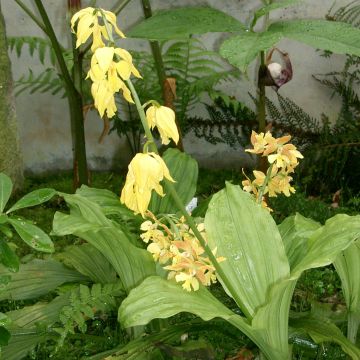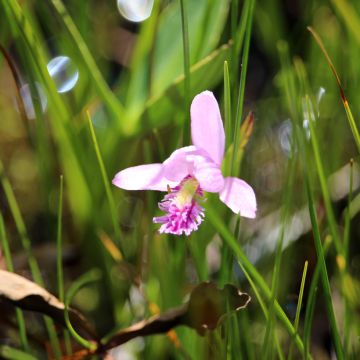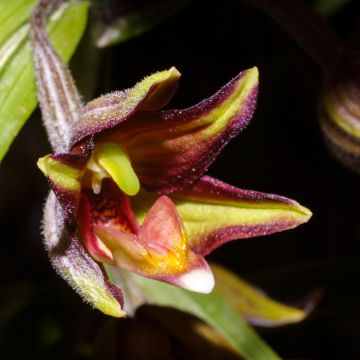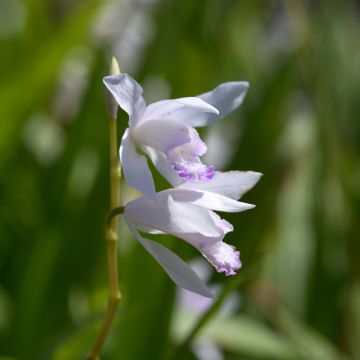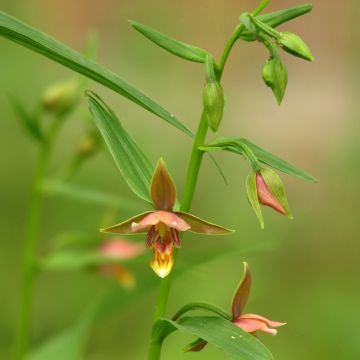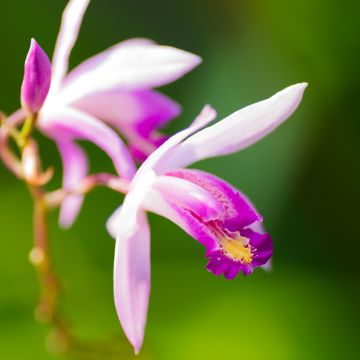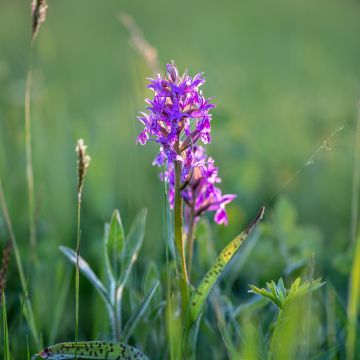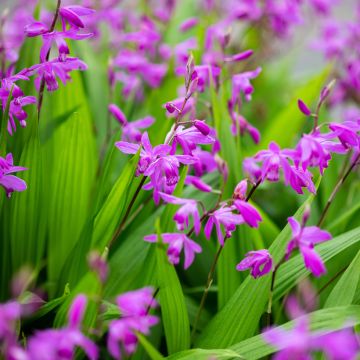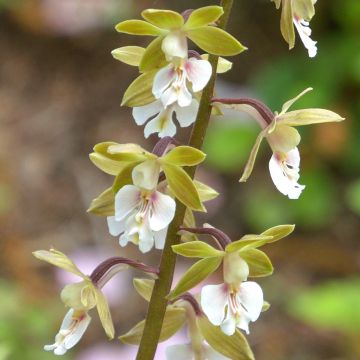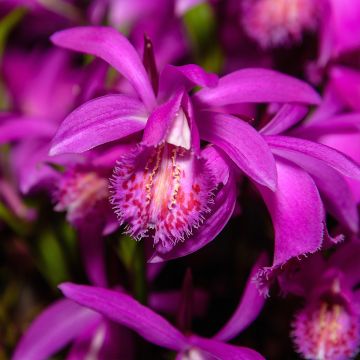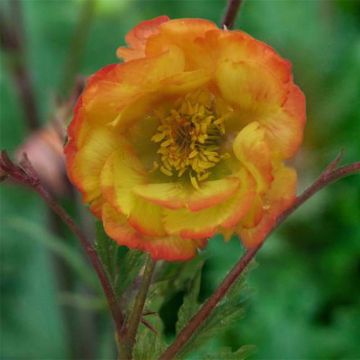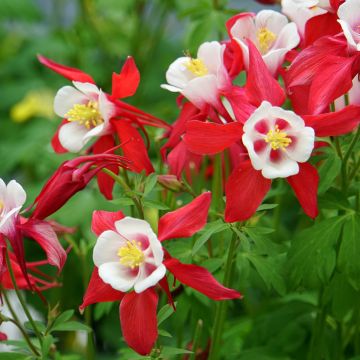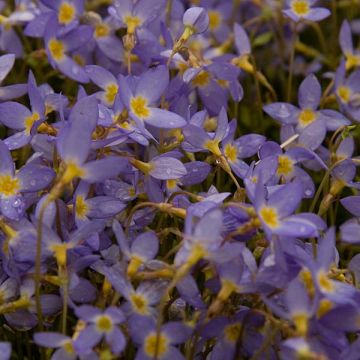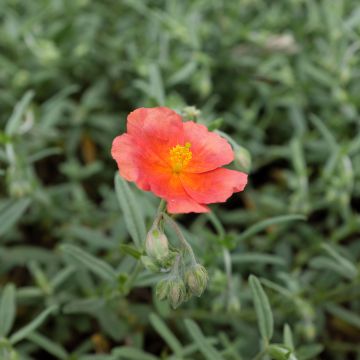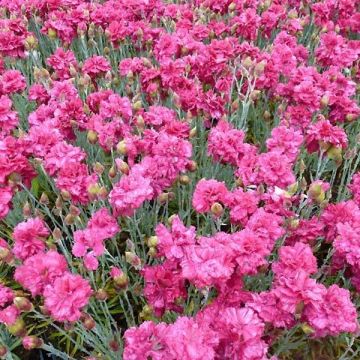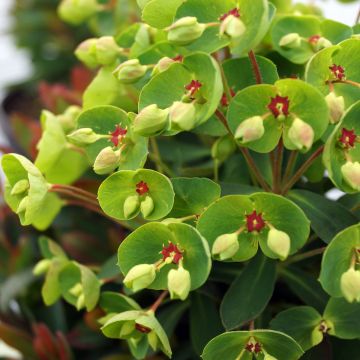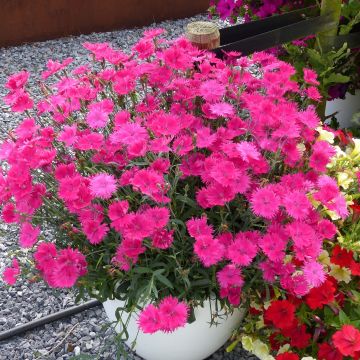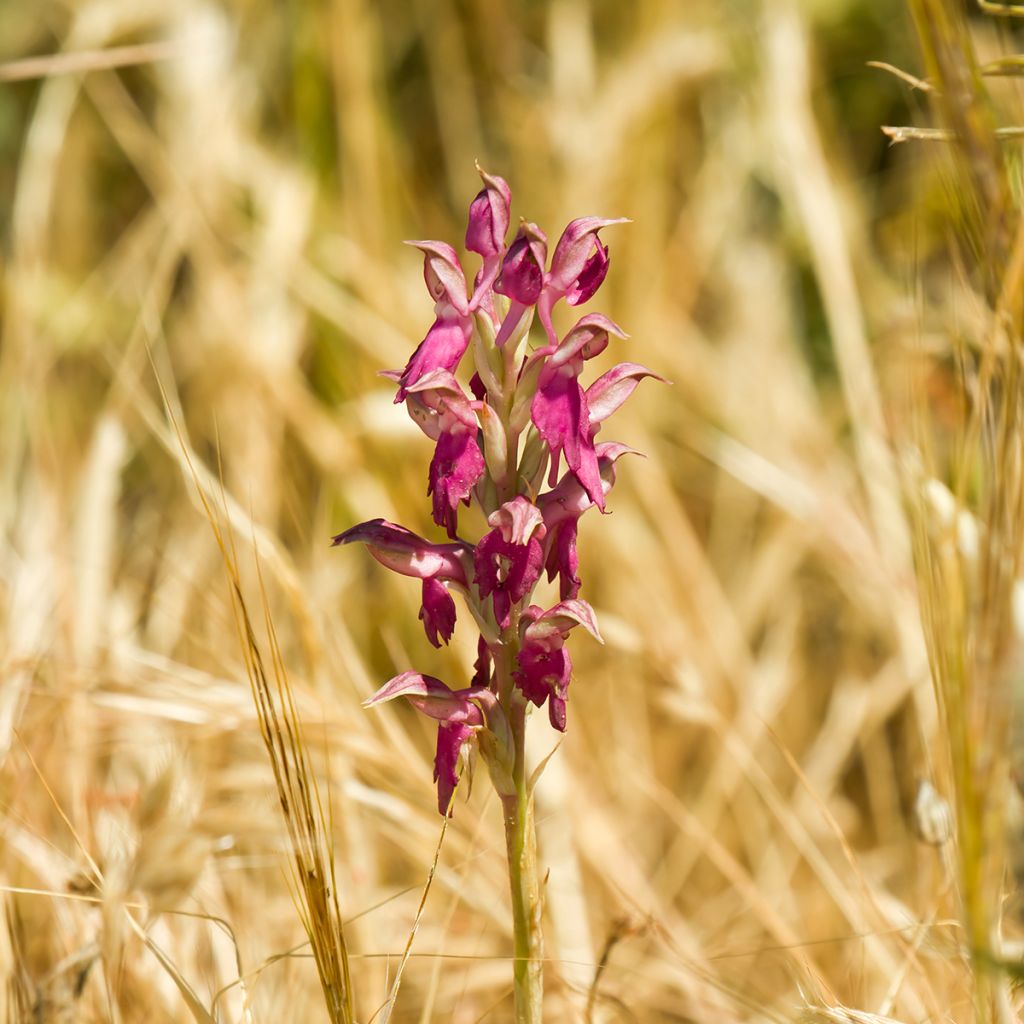

Anacamptis sancta, Orchis sacré - Orchidée vivace
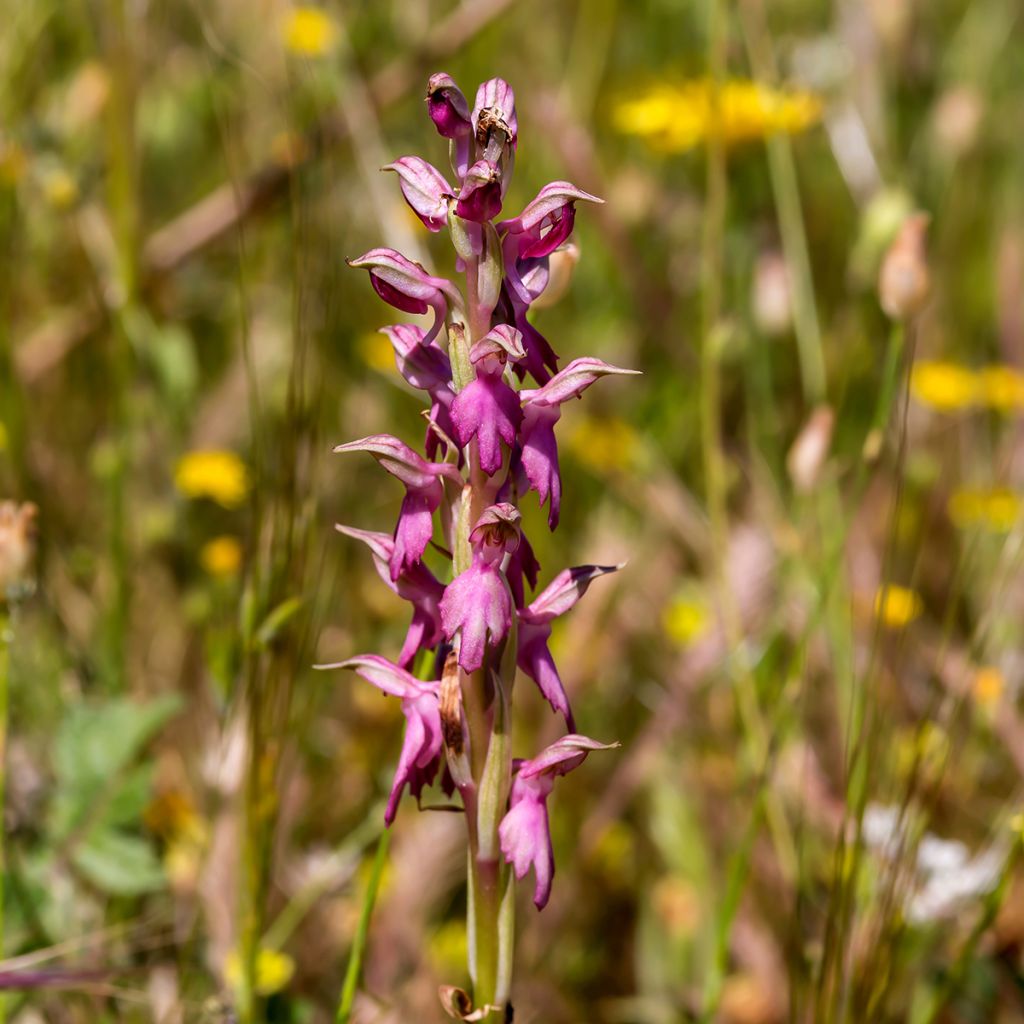

Anacamptis sancta, Orchis sacré - Orchidée vivace
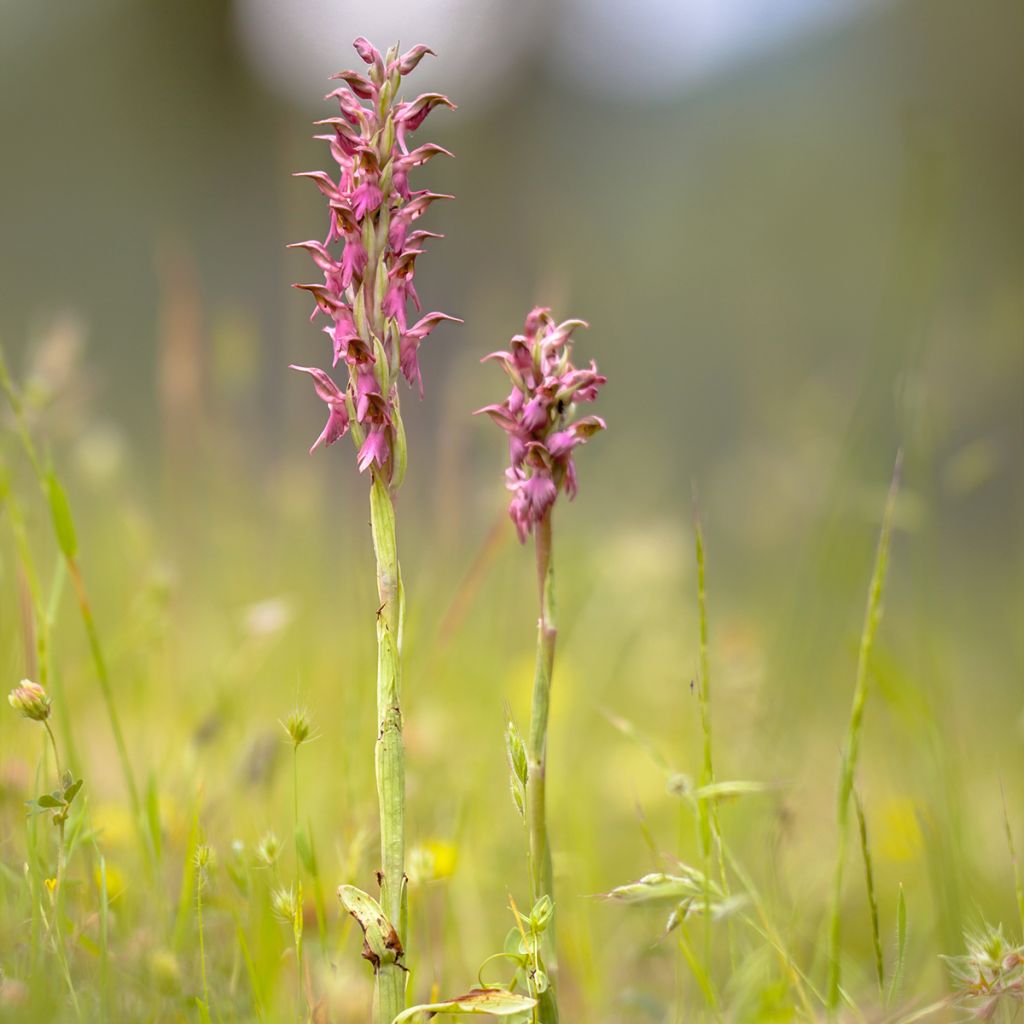

Anacamptis sancta, Orchis sacré - Orchidée vivace
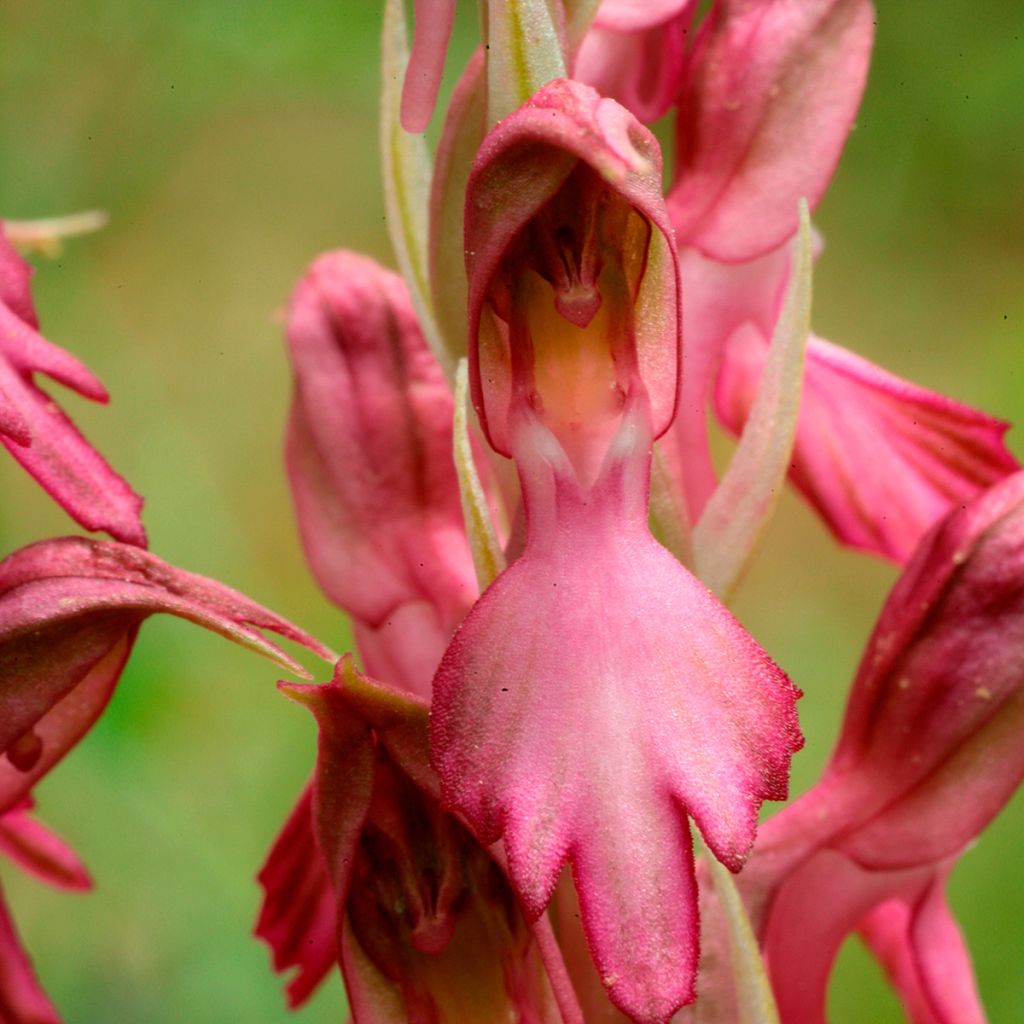

Anacamptis sancta, Orchis sacré - Orchidée vivace
Anacamptis sancta
Anacamptis sancta
Sacred orchid
The top-notch packaging perfectly protected this pretty young plant in its early growth stage! It is now in a rocky, well-drained soil, rather poor, not far from a naked ophrys (o.noir? O.miroir?) that appeared there on its own 3/4 years ago (and that snails and caterpillars love...!!)
Mi, 19/02/2025
Special offer!
Receive a €20 voucher for any order over €90 (excluding delivery costs, credit notes, and plastic-free options)!
1- Add your favorite plants to your cart.
2- Once you have reached €90, confirm your order (you can even choose the delivery date!).
3- As soon as your order is shipped, you will receive an email containing your voucher code, valid for 3 months (90 days).
Your voucher is unique and can only be used once, for any order with a minimum value of €20, excluding delivery costs.
Can be combined with other current offers, non-divisible and non-refundable.
Home or relay delivery (depending on size and destination)
Schedule delivery date,
and select date in basket
This plant carries a 12 months recovery warranty
More information
We guarantee the quality of our plants for a full growing cycle, and will replace at our expense any plant that fails to recover under normal climatic and planting conditions.

Would this plant suit my garden?
Set up your Plantfit profile →
Description
Anacampsis santa, the Sacred Orchid, is a botanic species from the Eastern Mediterranean that is quite rare in cultivation, as well as in nature. This terrestrial orchid starts growing in autumn, and in spring it produces floral spikes of varying colours, ranging from pink to dark purple. It then goes dormant in the dry summer soil. Adapted to specific biotopes and climates, this orchid acclimates more easily in Mediterranean rock gardens. It can also be grown in pots in less favourable regions, allowing for control of the substrate, protection from summer rain, and protection from cold and damp winters.
Anacampsis santa belongs to the orchid family. This species is only found in the Aegean islands, Cyprus, Anatolia, and the Near East. In its native lands, this plant is found near the sea, on poor and well-drained limestone soils: in scree, on bare cliffs, in uncultivated and hostile places, or on sandy dunes. It is a perennial plant with a tuberous root, which loses its leaves in summer. The foliage emerges in autumn and disappears by the end of spring, before July. It consists of simple, linear, lanceolate, entire, non-spotted, light green leaves. Flowering occurs between April and May along the coast, sometimes in June in colder climates. The slender flower spike measures between 20 and 45 cm (8 and 18in) in height. The modest-sized flowers consist of a labellum (the large petal located at the base of the flower) that is deeply divided and topped by sepals and petals forming a narrow helmet. At the back, the nectar-rich spur is short and relatively thick, curving downwards. The flowers do not have any spots, and their colour varies depending on the plants. They can be a mauve pink, a light pink, or a medium pink, with some being a fairly dark purple-pink, sometimes with a greenish tinge. The labellum also has another characteristic: its base is furrowed and has two ridges on either side of the entrance to the spur. In Turkey, the "bulbs" of this orchid are used to make a local beverage called Salep.
Our Orchids are not harvested from the wild but are propagated in nurseries. Obviously, this is a lengthy process that increases their price, but they are robust and well-suited to open ground. Quantities are always very limited!
Less tolerant than typical garden orchids, this Anacampsis santa is more suitable for knowledgeable enthusiasts. It can be acclimatised quite easily in a limestone rock garden in a Mediterranean climate, as long as it is not too cold in winter: it can tolerate brief freezes of around -8 /-10 °C (14°F) in dry soil and requires a rain-free summer. In this setting, you can combine it with various plants from scrubland and dry areas that have the same requirements but won't compete too much with it: Montpellier soapwort, common thyme, botanical tulips, and botanical crocuses, rockroses, and lavenders.
Report an error about the product description
Anacamptis sancta in pictures
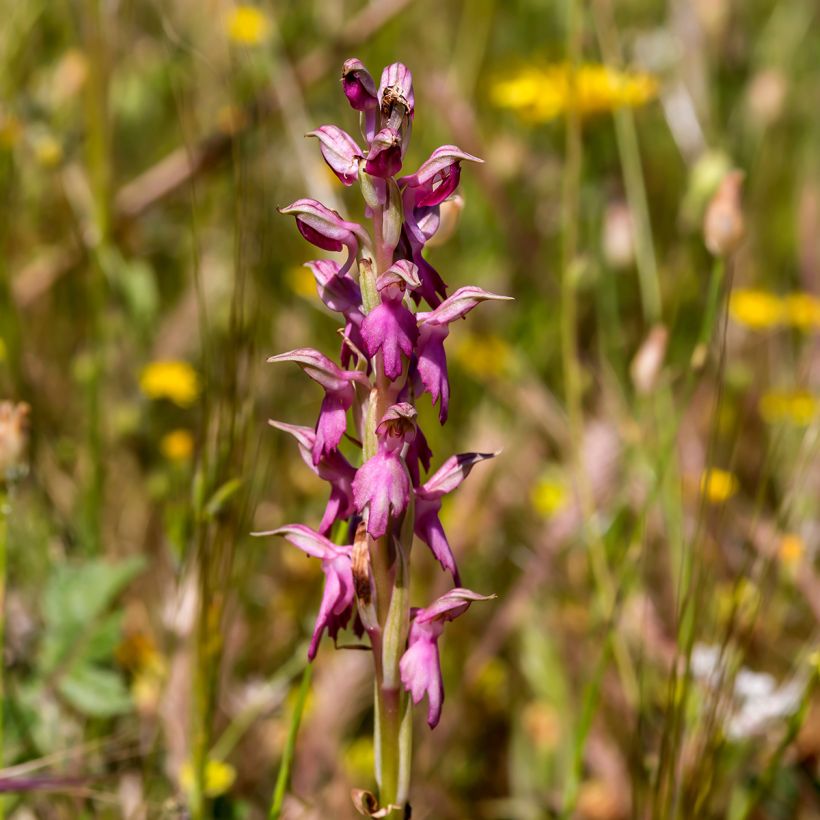

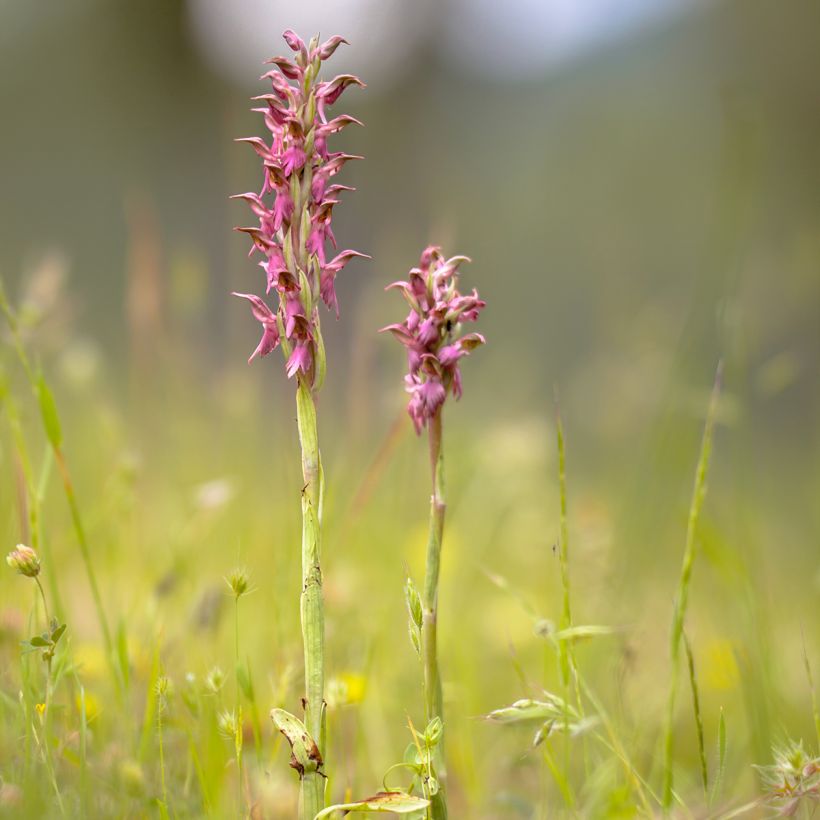

Flowering
Foliage
Plant habit
Botanical data
Anacamptis
sancta
Orchidaceae
Sacred orchid
Mediterranean
Other Garden Orchids
View all →Planting and care
Anacamptis sancta requires a Mediterranean climate, very dry in summer for its summer dormancy, and not too cold or too wet in winter. This species only thrives in chalky, poor, rocky or sandy, very well-drained soils. Its crown does not withstand winters that are very cold and wet. It seems capable of withstanding brief frosts of -8/-10 °C (17.6/14°F) if the soil is dry enough.
Exposure: in the sun, in an open position, without competition from other plants
This is a plant that has specific requirements which must be provided for successful cultivation. After flowering, the foliage quickly turns yellow and then completely disappears during the summer dormancy period. Over the years, if conditions are suitable, it multiplies thanks to the production of new tubers.
Cultivation in pots: in a very well-drained substrate, with a tendency towards limestone. It is advisable to use lava stone (pumice) or fine quartz to keep the soil light and well-drained. We recommend adding a little soil, poor in organic matter or clay (maximum 5%). Keep the pot dry in summer. Overwinter it in a bright, cool, frost-free room. Watering should be regular throughout the growing season, but not excessive.
Planting period
Intended location
Care
-
, onOrder confirmed
Reply from on Promesse de fleurs
Similar products
Haven't found what you were looking for?
Hardiness is the lowest winter temperature a plant can endure without suffering serious damage or even dying. However, hardiness is affected by location (a sheltered area, such as a patio), protection (winter cover) and soil type (hardiness is improved by well-drained soil).

Photo Sharing Terms & Conditions
In order to encourage gardeners to interact and share their experiences, Promesse de fleurs offers various media enabling content to be uploaded onto its Site - in particular via the ‘Photo sharing’ module.
The User agrees to refrain from:
- Posting any content that is illegal, prejudicial, insulting, racist, inciteful to hatred, revisionist, contrary to public decency, that infringes on privacy or on the privacy rights of third parties, in particular the publicity rights of persons and goods, intellectual property rights, or the right to privacy.
- Submitting content on behalf of a third party;
- Impersonate the identity of a third party and/or publish any personal information about a third party;
In general, the User undertakes to refrain from any unethical behaviour.
All Content (in particular text, comments, files, images, photos, videos, creative works, etc.), which may be subject to property or intellectual property rights, image or other private rights, shall remain the property of the User, subject to the limited rights granted by the terms of the licence granted by Promesse de fleurs as stated below. Users are at liberty to publish or not to publish such Content on the Site, notably via the ‘Photo Sharing’ facility, and accept that this Content shall be made public and freely accessible, notably on the Internet.
Users further acknowledge, undertake to have ,and guarantee that they hold all necessary rights and permissions to publish such material on the Site, in particular with regard to the legislation in force pertaining to any privacy, property, intellectual property, image, or contractual rights, or rights of any other nature. By publishing such Content on the Site, Users acknowledge accepting full liability as publishers of the Content within the meaning of the law, and grant Promesse de fleurs, free of charge, an inclusive, worldwide licence for the said Content for the entire duration of its publication, including all reproduction, representation, up/downloading, displaying, performing, transmission, and storage rights.
Users also grant permission for their name to be linked to the Content and accept that this link may not always be made available.
By engaging in posting material, Users consent to their Content becoming automatically accessible on the Internet, in particular on other sites and/or blogs and/or web pages of the Promesse de fleurs site, including in particular social pages and the Promesse de fleurs catalogue.
Users may secure the removal of entrusted content free of charge by issuing a simple request via our contact form.
The flowering period indicated on our website applies to countries and regions located in USDA zone 8 (France, the United Kingdom, Ireland, the Netherlands, etc.)
It will vary according to where you live:
- In zones 9 to 10 (Italy, Spain, Greece, etc.), flowering will occur about 2 to 4 weeks earlier.
- In zones 6 to 7 (Germany, Poland, Slovenia, and lower mountainous regions), flowering will be delayed by 2 to 3 weeks.
- In zone 5 (Central Europe, Scandinavia), blooming will be delayed by 3 to 5 weeks.
In temperate climates, pruning of spring-flowering shrubs (forsythia, spireas, etc.) should be done just after flowering.
Pruning of summer-flowering shrubs (Indian Lilac, Perovskia, etc.) can be done in winter or spring.
In cold regions as well as with frost-sensitive plants, avoid pruning too early when severe frosts may still occur.
The planting period indicated on our website applies to countries and regions located in USDA zone 8 (France, United Kingdom, Ireland, Netherlands).
It will vary according to where you live:
- In Mediterranean zones (Marseille, Madrid, Milan, etc.), autumn and winter are the best planting periods.
- In continental zones (Strasbourg, Munich, Vienna, etc.), delay planting by 2 to 3 weeks in spring and bring it forward by 2 to 4 weeks in autumn.
- In mountainous regions (the Alps, Pyrenees, Carpathians, etc.), it is best to plant in late spring (May-June) or late summer (August-September).
The harvesting period indicated on our website applies to countries and regions in USDA zone 8 (France, England, Ireland, the Netherlands).
In colder areas (Scandinavia, Poland, Austria...) fruit and vegetable harvests are likely to be delayed by 3-4 weeks.
In warmer areas (Italy, Spain, Greece, etc.), harvesting will probably take place earlier, depending on weather conditions.
The sowing periods indicated on our website apply to countries and regions within USDA Zone 8 (France, UK, Ireland, Netherlands).
In colder areas (Scandinavia, Poland, Austria...), delay any outdoor sowing by 3-4 weeks, or sow under glass.
In warmer climes (Italy, Spain, Greece, etc.), bring outdoor sowing forward by a few weeks.






























